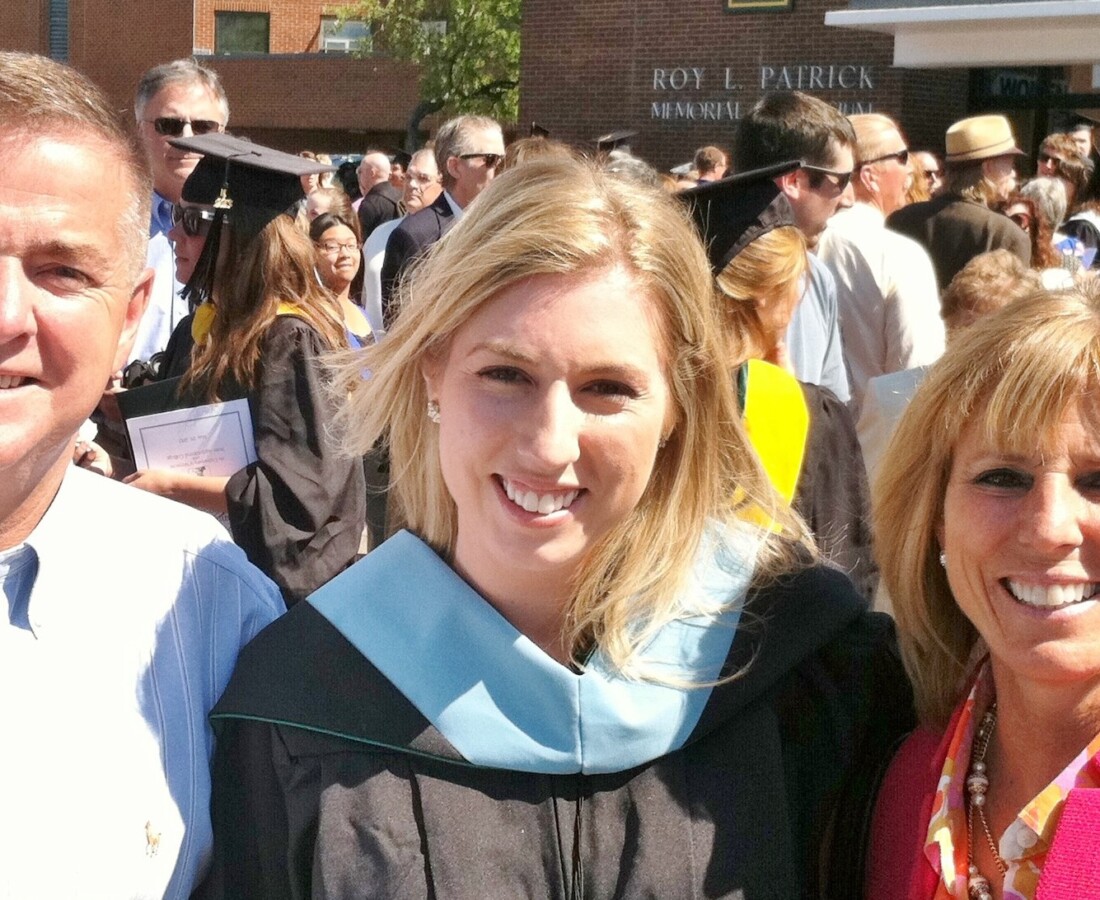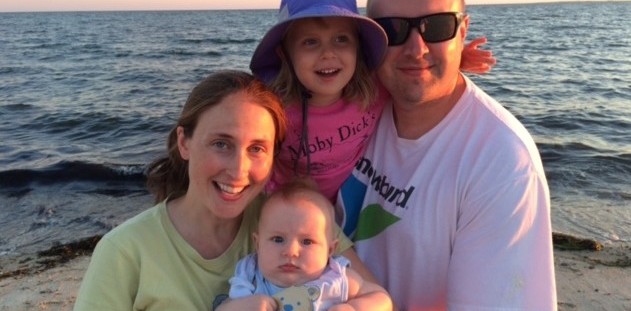Infectious disease epidemiologist and Shelburne Rescue EMT Chelsea Dubie completed UVM’s Graduate Certificate in Public Health in 2014. Dubie, who earned her undergraduate degree and a Master of Education at UVM, talks about Vermont public health issues, including monitoring measles, tuberculosis, the flu, and other outbreaks.
You work at the State Health Department as an infectious disease epidemiologist. Can you explain how you track and detect infectious diseases? How does surveillance work?

I track and detect infectious diseases through surveillance systems at the Department of Health or through reporting from providers or the general public. We also get electronic lab reports, or providers call us to report patients with suspect infectious diseases.
I check the surveillance program called EARS (Early Aberration Reporting System) daily. Emergency departments statewide submit data, which runs through a series of computer programs to pull specific data on syndromes we’re looking at. When there’s anything of statistical significance (such as a jump in the number of cases from one day to the next), the EARS program flags it. I look at the details of the Emergency Department visits and determine whether something needs further investigation. If so, I contact designated people at the facility for more information.
What infectious diseases are you currently monitoring in Vermont?
Most of my time is spent monitoring flu activity, doing syndromic surveillance, and participating in emergency preparedness-related epidemiological activities. I also back up my supervisor with foodborne outbreaks. I’m particularly interested in emerging infectious diseases like MERS-CoV, Ebola, and novel influenza strains, along with diseases like tuberculosis.
What’s your take on the current measles outbreak in California?
Regardless of your stance on vaccine exemptions, the California measles outbreak is sparking discussion. I’m hopeful that with all the media coverage, more people will talk with their health care providers or health departments to get more information.
Are you working on the TB case in Charlotte? Anything you can share with us about the risk of TB spreading in Vermont?
Yes. I’m working on the TB exposure response in Charlotte. In our Infectious Disease Epidemiology unit at VDH, each of my coworkers has individual expertise and infectious diseases of interest (one coworker works with facilities on infection control measures; two specialize in arboviruses and tick-borne diseases; etc.). When a situation like the TB exposure in Charlotte arises, our daily tasks shift to focus on the outbreak or exposure response, regardless of what we were working on.
What’s the most challenging aspect of being an epidemiologist?
The most challenging aspect for me was remembering all the biostatistics and math-related skills I learned in school!
Harvard published a post a couple of years ago on “Why Epidemiologists Should Get Involved with Policy.” A number of public health policies have been influenced by epidemiologic findings, including cigarette advertising bans, food labeling requirements, and air pollution standards. In light of recent outbreaks, do you have any thoughts on why epidemiologists need a major seat at the table when it comes to health policy?
When I started as an epidemiologist, I was told that a large part of my job was to collect data, analyze it, process it, and present it in a format that would be meaningful for stakeholders—health care providers, schools, policy makers, coworkers. I learned that I needed to think creatively and critically to portray data in a way that makes sense. Epidemiologists investigate patterns and causes of disease and how it affects different populations. These findings are then presented in a way that informs health policy makers to make decisions based on science and research. It’s important for epidemiologists to be involved in health policy decisions, as they are knowledgeable about how diseases affect various populations.

Your undergraduate degree was in exercise and movement science, and you eventually moved to public health. What made you decide to work as an epidemiologist?
I loved the public health courses I took as an undergraduate. After graduating in 2010, I worked for the Vermont Child Health Improvement Program (VCHIP) in the UVM College of Medicine’s Pediatrics Department as a project coordinator for pediatric public health research projects. I enrolled in a master’s program, where I incorporated many of the public health courses into my job, including epidemiology and biostatistics. I wasn’t initially pursuing a career in epidemiology, but the job fits perfectly with my interests and academic background. Now, I can’t imagine doing anything other than epidemiology.
When people think of infectious disease events, they often think of Ebola, HIV/AIDS, or SARS. Do you also monitor more everyday—but serious—outbreaks, like the flu?
We monitor infectious diseases across the gamut: enteric diseases, arboviralillnesses, flu, Ebola, measles, hepatitis…the list goes on. We have a list of reportable diseases on the Department of Health website, most of which are monitored daily.
What do you enjoy most about epidemiology?
I enjoy problem-solving, working with different people, using data to provide public health guidance, and going “out in the field” during investigations or outbreaks. Also, it just takes one call from a provider to change the work I’ll do for the next week. I like the unpredictability of it. I think the coolest thing about epidemiology is waking up without knowing what the workday is going to bring, but knowing I’m making a difference.





